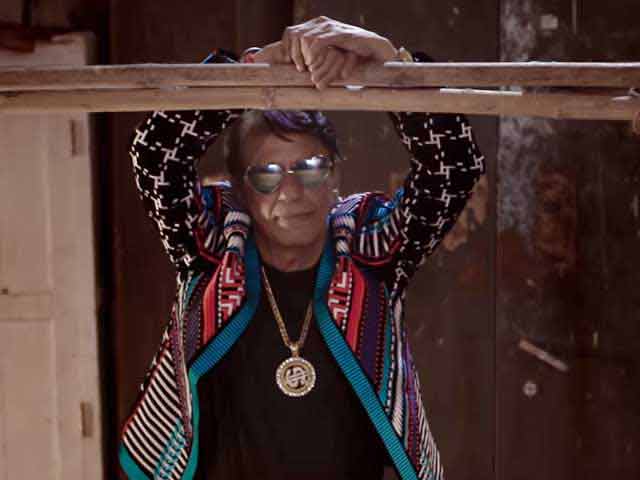Suyash Kamat joined a course of film-making for his undergraduate course as an instinct. But only through the college days, did he realise the seriousness of the art. Like a lot of kids his age, he bought a digital camera in 2010 and tried his skill at photography. The hobby grew into something serious. After his 12th, he decided to take a course in photography or film-making because he had begun making and editing small videos by then. What seemed like a teenager’s choice has grown into a serious art for Suyash.
He tell us a few things about film-making in this age.
Who has been your role-model or influence?
No one particular person remains a role-model or influence because we tend to continuously evolve and so does our inspirations. So at multiple points I have had different individuals whose outlook towards their life and towards their art has consciously or sub-consciously affected me.
What are some challenges for a young film-maker?
It is often said that its easier than ever before to get a film made. But this has only materialized into better ‘looking’ films, not great films. We are privileged with technology but our ideas are more saturated or inspired than ever before. Being exposed to so much visual content everyday is tiring, especially considering how rapid and unorganized the consumption is. Added to that is the cultivation of a culture that is seeking immediate validation from the internet.
There are of course advantages to these which help you share your content widely, learn about the different responses people can have, but the creation should be irrespective of the outcome and the struggle has been to find what I wish to make and how I wish to make it.
Considering how rapidly video is replacing all other content, it is only going to be easier to move into these kinds of careers.

How important is formal training in a creative field like film-making?
At an institute, you learn not only the craft of filmmaking but everything ranging from history, philosophy, world politics, mythology, other art forms etc. The idea was to understand the interdisciplinary nature of the medium and how it can lie at the intersectionality of all these different topics.
This is what the most interesting aspect of film school is, the diversity and knowledge that one is exposed to. I had classmates from all strata of society so the variety of topics we engaged with was also diverse. We were constantly encouraged to look for what we can express uniquely from within ourselves, so the individuality that it brought was of immense value to everybody. There’s of course the initial time where no matter what we ended up making, it seemed mediocre but that’s also an important learning. It takes time.

Can you tell us something about your work so far?
I have written-shot-directed-edited 3 fictional short films and 1 short documentary. These have dealt with whatever concerned me at those moments in time. My recent short film ‘Marisoul 1998’ took the longest and was a way of understanding what I felt in an urban city. The sense of abandonment and loneliness that one feels in a city is far more than a place like Goa, where I originally come from. And every work is an opportunity to explore our sense of craft as well. There is immense learning at every stage of filmmaking.
What do you think of the nature of Indian filmmaking in modern digital times?
It is exciting to be a part of this phase. Recently I shot an entire film on my iPhone and it turned out beautiful. But digital or not, the question still remains about the story and what we wish to express. Digital has only made it more accessible. So it helps to keep making stuff, keep faltering and understand more and more as we keep doing stuff.

What will your advice to someone who wants to pursue film-making?
Don’t be fixated to immediately join a film school for your under-grad. It helps if you have diverse range of experiences before coming to a film-school and writing stuff. It helps to have a little maturity and a unique way of seeing the world. Watch different films, read what others have written about the film, write what you feel about the film. Watching films is the first step to making films. Besides the films screened in our college, I would sneak into the screenings happening in FTII, Pune. Some of those films bored me, even put me to sleep. But there are parts that have remained with me and I have rediscovered these films anew when I revisited them.
Besides this, try and understand the way your world works. I had attended a workshop by Nitesh Mohanty titled ‘Ways of seeing’, inspired by John Berger’s seminal book and tv-series ‘Ways of seeing’. Nitesh elaborated about different artists from different fields of art and their ways of seeing the world and in turn, inspired us to seek our way of seeing the world with our unique gaze. Be open, be willing, be inspired, be vulnerable and be confident about your own individuality. These are some of the things I took away from that workshop, and I guess this applies to everybody.
Also, to add a small note, be aware of your own privileges. Gender and caste privileges are a reality, not a thing of the past. It is important to engage with the identities that the society has given us and it is important to break free from them to encourage a more liberal, all encompassing society.
Read Also: Meet Shadab Siddiqui; A Carpenter Turned Movie Director














